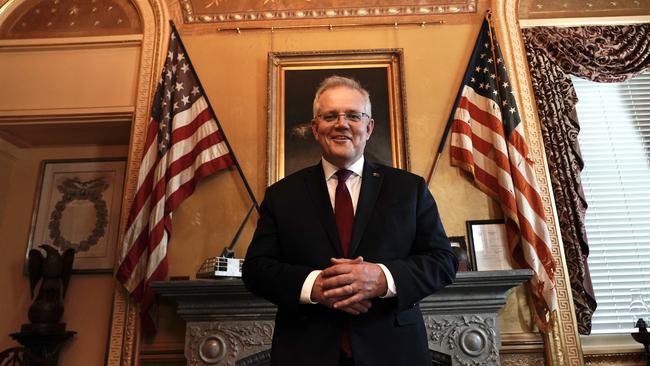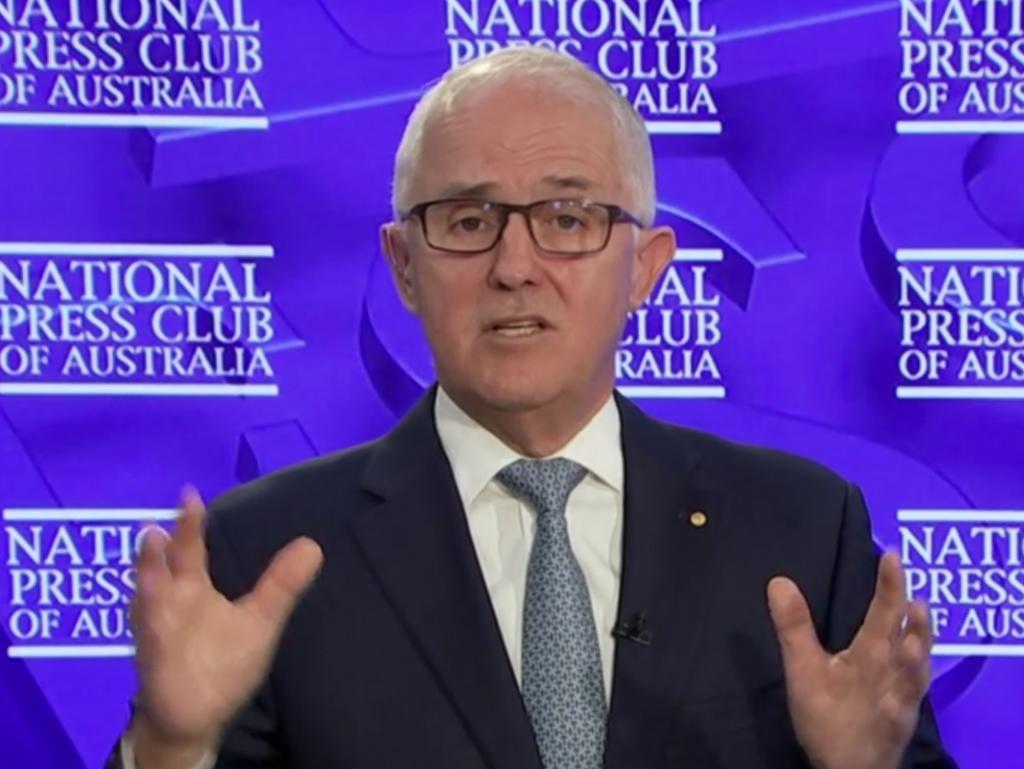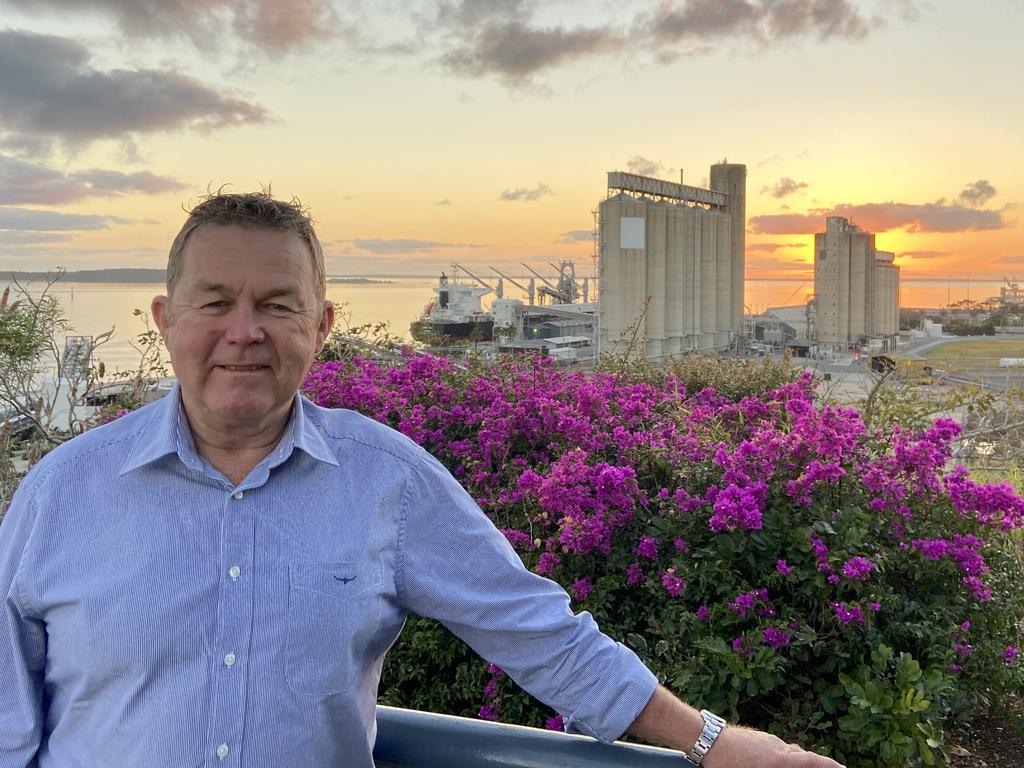
It’s not only because AUKUS will put Australia into the major league militarily but also because it’s the first really big decision he has made as prime minister.
A prime minister with the courage to make the big decision others have baulked at is capable of making more. The question is, will his next big decision be the right one – to bring us out of this pandemic as one country – or the wrong one: to commit us to net zero by 2050 without a full reckoning of what it will cost and with nuclear power off the table?
When Morrison became prime minister, his main task was to win the 2019 election. He did that by exploiting Bill Shorten’s leftist policy overreach in ways that would have been beyond his predecessor who, as his irrational speech to the National Press Club on Wednesday showed, was the best leader Labor never had.
But after Morrison’s miracle win, what? On the pandemic, so far his performance has been mixed: good on closing international borders and rolling out income support early; only fair on vaccine sourcing and the subsequent rollout. Beyond Covid, the question asked around Canberra is: What does the Morrison government really stand for?
Conviction is an elusive but necessary quality in a leader. Like judgment, you notice it most only when it’s absent. People talk about Morrison as the minister who “stopped the boats”. Yes, he did but, as with all big policies, the real author there was more the prime minister than the minister.
Don’t get me wrong; Morrison did well as a minister. He was sufficiently strong and self-possessed to make important portfolio decisions. Yet even where a minister makes a strong recommendation to deal with a crisis, it’s the prime minister who ultimately makes the call. Always in a cabinet government, it’s the prime minister who has to say yes or no and to make the public running on everything that matters.
Prime ministers sometimes can win elections on the basis of political savvy, but they need conviction and judgment if they’re going to change the country. On submarines, Morrison’s conviction was that nuclear now was the only way to go and his judgment was that its time had come.
On the pandemic, though, at least so far, his conviction has been that safety trumps freedom so lockdowns have been justified; and his judgment has been that he can’t win a fight with the premiers over state border closures.
That probably was the case last year, but not any more, particularly given that state decisions to order people to stay at home and to close businesses have forced a federal government committed to budget repair into the biggest debt and deficit in our peacetime history.
That also has forced a Liberal Party committed to individual freedom to acquiesce to restrictions unprecedented even in wartime. There’s no doubt that this has perplexed the Liberal base. Hence the importance of the submarine deal as a reset that finally has given committed conservatives, who have wanted this for years, a reason to re-elect the government that goes beyond “the alternative would be worse”.
Yet despite the wind the submarines issue has put in Morrison’s sails, it won’t be front of mind for most voters come next May. After two years when everyone’s life has been liable to constant up-ending, and half the country has been subject to intermittent house arrest, most voters will want to put this purgatory behind them. The danger for Morrison if borders are not well and truly open and lockdowns are not wholly in the past will be his indelible association with the most miserable time in voters’ lives.
It was never going to be easy to win a fourth term, coming from behind after the redistribution. As well, any prime minister would struggle to be re-elected after presiding over the most chaotic breakdown in the federation in a century. After 18 months of a national cabinet where Morrison has been more the chairman of a committee than a national leader, his challenge is to take charge of domestic policy the way he has taken charge of national security policy. But that will mean being ready for the fight with the premiers that he has shirked since the start of the pandemic.
All the premiers are putting their own construction on what was announced as the national cabinet decision to end general lockdowns at 70 per cent vaccination and to end state border closures at 80 per cent vaccination.
Western Australia and Queensland are reserving their right to pursue a Covid-zero policy with lockdowns in response to any outbreak and to keep their borders closed as long as there are significant Covid numbers anywhere else. Apart from the resentment rampant in NSW and Victoria about the health authoritarianism that has ruled our lives since the pandemic hit – and the ineptitude highlighted by Wednesday’s workplace charges against the Victorian Health Department over last year’s hotel quarantine debacle – I can’t see Australians wanting to re-elect any prime minister who says the unity of the nation is out of his hands or none of his business.
Almost by definition, a prime minister’s job is to tackle the issues that are too hard for everyone else; the issues where there will never be a consensus until someone has had the courage to make a decision and then make it stick. Because Morrison has clung to “safety before freedom” public opinion on the pandemic, my fear is that his next choice will be for a popular decision rather than the right one; that he’ll opt for the easy headlines on net zero rather than the hard graft of taking on the premiers who have locked people up and locked people out for far longer than needed.
Stopping federal payments to the states in breach of national cabinet decisions (which has been flagged) and launching a High Court challenge to continued border closures (which hasn’t been flagged) would make more electoral sense than joining Malcolm Turnbull (as flagged in Wednesday’s press club speech) at Glasgow where no commitment Morrison could make would win over the climate alarmists.
Net zero may please the so-called “modern (left-wing) Liberals” and their dinner-party mates in woke boardrooms momentarily. But it will dismay every Liberal who thought this government was first elected to end Labor’s emissions obsession and therefore should not sign up to a Labor-lite climate agenda that means, across time, almost 100 per cent intermittent, renewable energy, only electric cars and almost no meat in our diets because of the emissions from agriculture. And their feelings have only got stronger with the Prime Minister ruling out nuclear power in recent weeks.
For any successful Liberal government, the important thing is to make our country stronger. Morrison undeniably has made us stronger with nuclear submarines and AUKUS; and he certainly would help our strength were he to end lockdowns forever.
But any opting for net zero would make us substantially weaker and poorer in the face of a China that won’t cut its own emissions and invokes climate change only to damage its foes.








It’s hard to overstate the importance of Scott Morrison’s nuclear submarine decision.